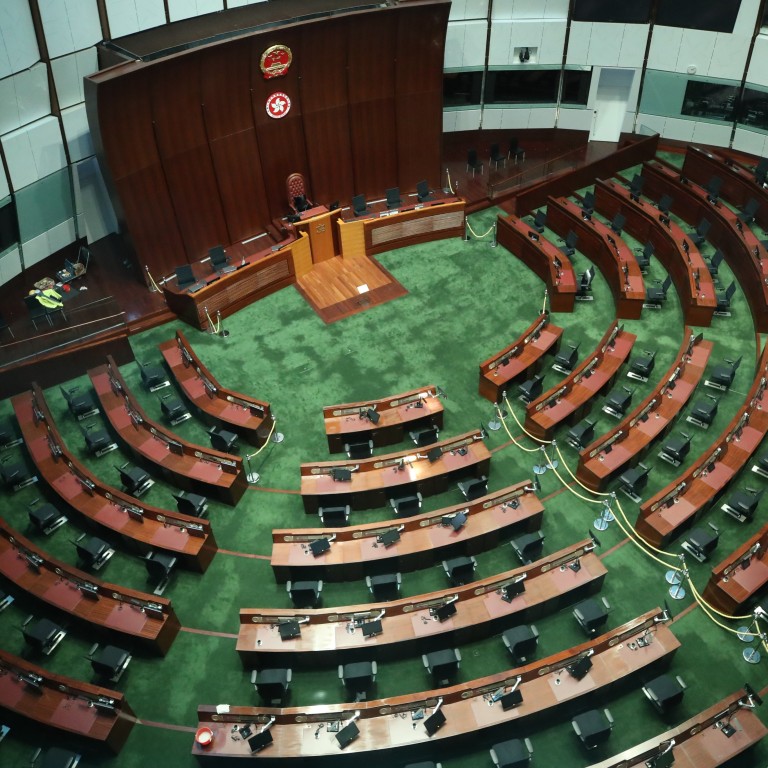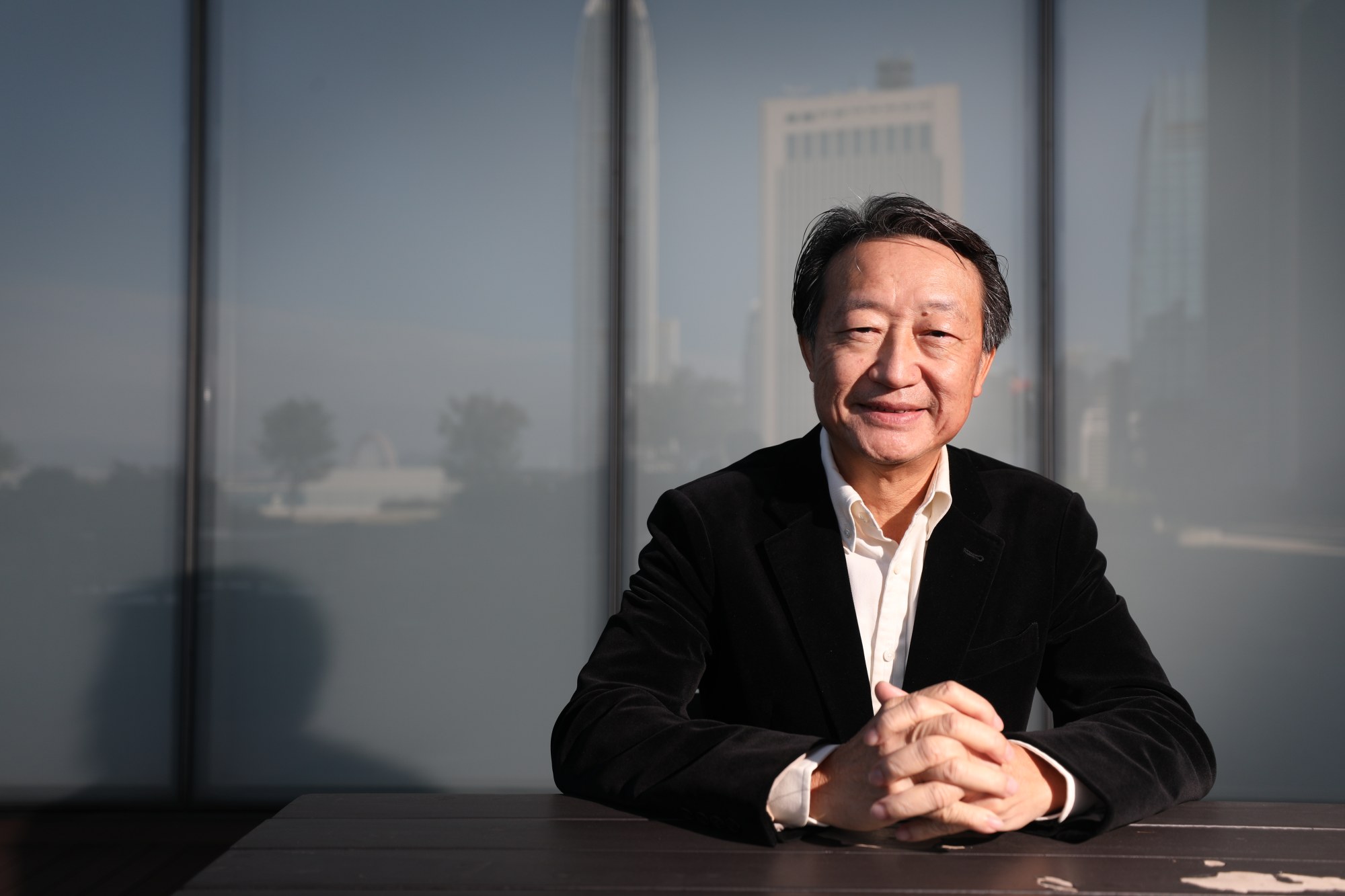
Hong Kong lawmakers reward staff with bonuses just weeks after start of Legco term
- Lawmaker Ambrose Lam says three employees who got bonuses two weeks after being hired did ‘hours of voluntary work’
- Three lawmakers did not violate Legco guidelines, but early bonuses ‘affect public perceptions’
Legislator Ambrose Lam San-keung, who represents the legal constituency, paid bonuses totalling HK$34,000 (US$4,331) to all three of his staffers on January 31, two weeks after they were hired.
Fellow lawmaker Holden Chow Ho-ding, vice-chairman of the Democratic Alliance for the Betterment and Progress of Hong Kong, gave a fixed HK$5,000 Lunar New Year bonus to six of his eight staffers in January, while legislator Kenneth Lau Ip-keung, who represents the Heung Yee Kuk constituency, paid a total of HK$26,000 in discretionary bonuses to two of its nine employees on January 28.
Hong Kong officials should avoid bulldozing bills through Legco, top adviser warns
But Lam defended his decision, telling the Legco’s accounts office in April that his three workers had helped him “voluntarily” before any formal employment relationship was established due to the short period between his election last December 18 and the start of the legislature’s new term on January 1.
He added the bonuses were to show appreciation for their “voluntary assistance” for Legco-related business, and had nothing to do with the election, even though he had “no employment relationship with them in early January 2022”.
“The bonus was to show appreciation for their voluntary help for all Legco-related matters, including setting up of the member’s office, and preparation of all kinds of paperwork,” he wrote.
Lam told the Post that the three had worked overtime on “numerous days” to help him get accustomed quickly to Legco work and serving the public effectively.
“The bonus is an appreciation for their voluntary services and overtime work,” he said, adding that in terms of the time spent, the amount was less than the per-hour pay they were entitled to.
Chow, a lawmaker since 2016, said his staff had been working for him since the previous Legco term.
“They have diligently worked here for many years, so I decided to provide them a bonus of not more than one month’s salary,” he said.
Lau told his staff in writing that the sum was a reward for their good performance, contributions and goals achieved over “the past period”.

Former accountancy constituency lawmaker Kenneth Leung Kai-cheong, who served between 2012 to 2020, questioned Lam’s payment to such new employees saying it was “quite rare” and something he had not heard of before.
He said it would have been better if Lam had paid them out of his own pocket if it was meant for the period between his election and the start of the Legco term.
Although the bonuses paid at the start of the year were “not a huge amount”, he said it could still raise questions.
Leung said lawmakers usually gave their staff bonuses at the end of the year, and only to good performers.
He understood that some paid bonuses to staff who worked for them in the previous term if they had not done so earlier or had used up their budget.
Chinese University political scientist Ivan Choy Chi-keung said although the three lawmakers did not violate any Legco guidelines, paying bonuses so early could affect the public’s perception of how they used taxpayers’ money.
“It’s a bit hasty,” he said. “It would raise suspicions about whether it was really related to Legco work.”
‘Hong Kong’s Legco complex expansion could be capped at HK$1.56 billion’
Apart from receiving a monthly salary of HK$103,130 and an annual medical allowance, each lawmaker is allocated HK$2,829,310 a year during their four-year term for office expenses.
These funds can be used to cover office rental, furniture and stationery, consultancy services, promotional items and staff benefits including contract bonuses, double pay, or end-of-agreement gratuity.
Another HK$225,970 is set aside annually for entertainment, liaison and travelling expenses that do not require a receipt or supporting documents.
The Post found that at least seven legislative assistants were paid more than HK$60,000 – nearly double what district councillors receive.
They include an employee of Legco President Andrew Leung Kwan-yuen, who was paid HK$69,000 a month, and Ivan Chu Siu-lun, founder of the Hong Kong Sustainable Development Research Institute, who was appointed chief of staff for first-term lawmaker Gary Zhang Xinyu.

Zhang said he hired Chu, an experienced legislative assistant, on a full-time basis for a few months to help set up his office and train his staff who were not familiar with Legco matters.
“Although my team and I have our own speciality and expertise, we had no Legco experience as new joiners. We really needed an experienced person to help us,” he said. “It’s good that he could make a few months’ time for us.”
Checks by the Post also showed that lawmakers had spent both large and small amounts on a wide variety of items and services.
Among those who spent thousands on rapid antigen tests for promotional use at the height of the fifth wave of the Covid-19 pandemic were medical legislator David Lam Tzit-yuen, who spent HK$31,500 to buy 2,100 test kits, and lawmaker Carmen Kan Wai-mun who spent HK$13,750 on 550 kits.
Others spent thousands each month on consultants to run their social media accounts and press relations.
Extra HK$391 million needed to expand Hong Kong’s Legco for new members
Reverend Peter Koon Ho-ming, of the Election Committee constituency, spent an “information service fee” of HK$1,000 for someone to pen each of his 21 commentaries run by the pro-Beijing newspaper Wen Wei Po.
Lawmaker Simon Hoey Lee, also of the Election Committee constituency, spent HK$50,000 hiring barrister Wang Kwok-wah to compile a research paper on a bill currently before the Legco. The pair had previously co-authored two books.
Other items that turned up included a 95 yuan (HK$110) fingerprint attendance machine bought by Election Committee legislator Maggie Chan Man-ki, as well as a HK$3,000 teleprompter and a HK$3,150 surveillance camera purchased by lawmakers Perry Yiu Pak-leung and Edward Leung Hei, respectively.
Additional reporting by Chester Wong

